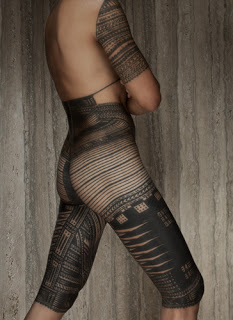Thursday 2 August 2012
Shahriar Asdollah-Zadeh
Last week, I blogged about how the concept of the homeland is not a memory of a fixed place in time. Rather it is discourse that engages the past, present and future all at once.
Trans-experience is a development of the term diaspora. It emphasizes an identity in flux constantly changing and responding to influences both past and present simultaneously. This term, trans-experience, describes an evolving identity that can change any time due to the memory of the homeland while being in the new environment.1
Rejecting any fixed representations, the artists within Home AKL propose hybrid identities. They negotiate an art practice where past, present and future memories of the homeland simultaneously influence the new ‘Home’ they live in, Auckland. This is evident in Siliga David Setoga’s Blackboard Work and Greg Semu's self portraits with his pe’a tattoo.

Siliga David Setoga, Blackboard Work, 2010-2012
blackboard, chalk, courtesy of the artist
Setoga’s work is universal in commentary and applicable to any minority group migrating to New Zealand and the struggles they face assimilating as young students to the New Zealand ‘norm’. The first Blackboard Work addresses the issue of replacing a child’s birth name, from Samoan culture with a first name to assimilate into a primary school classroom. Setoga is displaying a hybrid cultural memory of his childhood, where tradition just as important as assimilation.

Greg Semu, Self-portrait with side of pe'a, Sentinel Road, Herne Bay, 2012, digital print, Auckland Art Gallery Toi o Tāmaki, purchased 2012
In contrast, Greg Semu celebrates his ritualistic roots of pe’a through documentary photography. Semu fully reveals all and documents publicly his tattoos for the world to see. Semu is asking; what are the politics of identity? Do my tattoos define who I am? Alternatively, is it a critical interpretation of the self and the ‘other?’
1. Chiu, Melissa, “Breakout Chinese art, outside China.” Milano, Italy: Edizioni Charta, 2006.